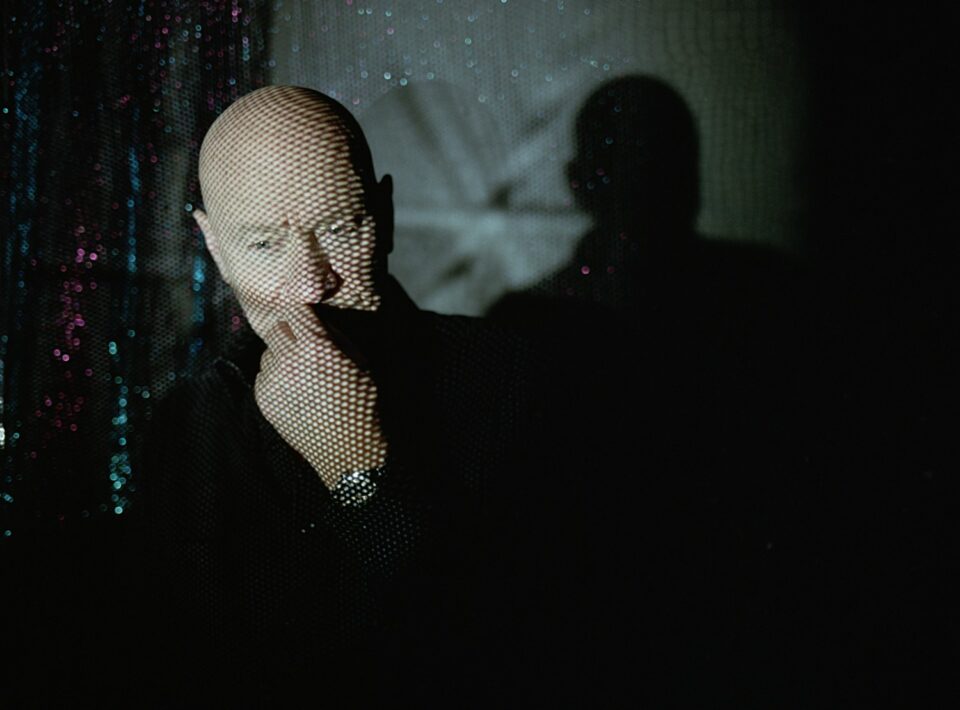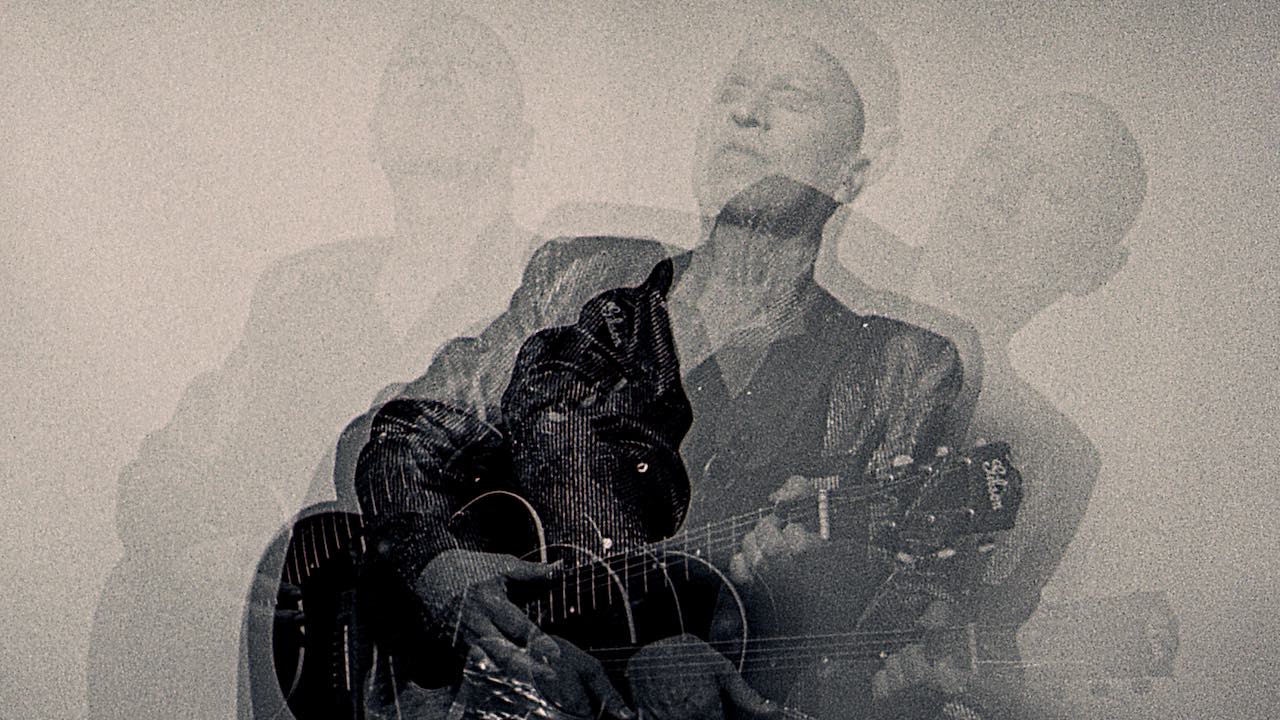Starting with their 1983 debut Soul Mining, The The released a half dozen albums that showcased frontman Matt Johnson’s ultra-candid and perceptive lyrics, backed with skillfully crafted music that, over the years, encompassed an impressive array of styles ranging from post-punk to new wave. After 2000’s NakedSelf, Johnson’s attention shifted to focus on soundtrack work instead—but now, 24 years later, The The are back with a new studio album. Ensoulment’s 12 tracks prove that Johnson remains charismatic and unabashedly outspoken as he takes an unflinching look at big-picture topics such as life and death, war and politics, love and sex, and plenty in between.
To support the album, The The are currently engaged in an extensive tour taking them through the rest of the year as they traverse Europe, North America, New Zealand, and Australia. There will be no opening act; instead, The The will perform two sets per show. The first will be comprised of Ensoulment in its entirety, then an intermission followed by a selection of various songs from across the band’s entire career. As the one who founded The The in London in 1979, and who’s been the only consistent member and main songwriter ever since, Johnson has been firmly in charge of the band’s direction. With Ensoulment, he tells me, he realizes why it’s finally time to bring The The back into the studio.
You can check out the band’s “Ensouled Tour” dates here (the US leg begins October 11 in Atlanta), and pre-order the new LP ahead of its September 6 release here.
How did you know it was the right time to do another album?
I didn’t intend to take 25 years between albums, but life gets in the way. I was living in different countries and concentrating on things outside of songwriting. I got involved in film soundtrack work, and lots of other things were going on, but it just got to the point where I felt very driven. Particularly, the state of the world: We’re living through very interesting times. A lot of big changes. There’s a lot of disorientation. And it’s quite a fertile time, creatively, I think, because of that.
What do you hope people will feel when they hear these songs for the first time?
I want them to get out of the songs what I put into them. I’m often associated with being a political songwriter, but most of my songs aren’t about politics. On this album, I’d say a third are political, but there’s a lot of songs about life and love and other elements outside of politics. And I think it’s quite an emotional album. It’s quite an honest album, telling the truth from my point of view. Obviously, I’m 25 years older than [when I made] the last album, and therefore have a different point of view. More mellow in some ways, not so mellow in other ways, I suppose. But I hope people listen with an open mind and an open heart. I hope it becomes a soundtrack for people’s lives, like some of the other albums have been.
“Every song, I try to make sure that there’s a slight upturn and an optimistic, positive message embedded within it—and the album as a whole—because I’m ultimately quite a positive person.”
How do you decide what you’ll address with your lyrics?
I suppose [I address] the things that I’m more interested in, that affect me. Some of the more emotional songs, [such as] “I Want to Wake Up with You,” are more about memory. That song isn’t about one particular relationship; it’s a composite of different situations. It’s really about that moment where two people are falling in love, but pre-consummating their relationship—that moment just before, when it’s a recognition on both sides of this attraction, and the walls dissolving between them. I think it’s a feeling that people spend their lives trying to experience. Some of the songs are about specific subjects—“Kissing the Ring of POTUS” is about the fall of the American empire. So it’s a very diverse album in the sense that it has very big subjects and very small, intimate subjects. We are quite complex beings. We’re multidimensional.
How did you learn to write like that in the first place?
A lot of practice. I’ve been writing since I was a teenager. But also just through the experience of life. I’ve had a lot of tragedy in my life. I’ve lost a lot of people close to me, and it’s made me grateful for the family and the friendships that I have. And hopefully, that’s helped increase my empathy and [my ability] to try to put myself in other people’s shoes. We’ve all got a long way to go, a lot to learn.
Do you ever look back at any of your lyrics and wish you hadn’t been quite so candid with them?
Some of the earlier love songs were probably a bit too close to the bone. It probably wasn’t fair on the people that I was in relationships with at the time. But when I was younger, it felt like the right thing to do. I wouldn’t necessarily write that way now. I try to find other ways of being truthful without necessarily involving other people.

Even when you’re painting a more dystopian picture of the world, there’s also a sense of hope infused into your songwriting. Do you do that on purpose?
Yes, because I’m a hopeful person. The music, I think, expresses a lot of hope and joyousness. Every song, I try to make sure that there’s a slight upturn and an optimistic, positive message embedded within [it]—and the album as a whole—because I’m ultimately quite a positive person. I have my misgivings about the world, but I think 98 percent of human beings are good, decent people. Unfortunately, there’s a tiny percentage of psychopaths that have seized control of the planet. But I have a lot of faith in people. How do we get control back from the psychopaths? That’s the problem.
Instrumentally, your sound has been quite distinctive, even as you’ve explored different styles.
I think the reason I probably don’t sound like anyone else is because I’m completely self-taught. I was a truant, which meant I ran off from school at 15. And everything I’ve done has been just learning the hard way, figuring things out for myself. So I don’t necessarily fall into the same established patterns within songwriting or production. I’m always trying to find new ways of expressing what I’m thinking and feeling.
“I don’t necessarily fall into the same established patterns within songwriting or production. I’m always trying to find new ways of expressing what I’m thinking and feeling.”
How did you know that you wanted to be a musician in the first place?
I grew up living above pubs. [When] I was only about five, the customers would say, “What do you want to do when you grow up?” And I would always say I wanted to be a singer or an actor. So I knew I was going to be one or the other. In the pub there was an old piano, and I would go down there and just mess around with it. I liked the effect that music had on me. And so when I was about 11, I formed a band with my friends. We did cover versions of Beatles and David Bowie and Deep Purple songs. Then we started writing our own songs. I found I was inspired by John Lennon—a songwriter who was trying to express the truth as he saw it. A great saying of his was, “Tell the truth and make it rhyme.” So I try to live by that advice.
What do you think as you look back on the legacy that you’ve created with The The?
I wish I’d made more albums, in some ways. But all the albums I’ve made, I’m proud of. They’re all albums that were made for the right reasons, and I tried as hard as I could. There’s no record I’ve put out that I’ve regretted. And, God willing, there’ll be a few more albums to come! FL







